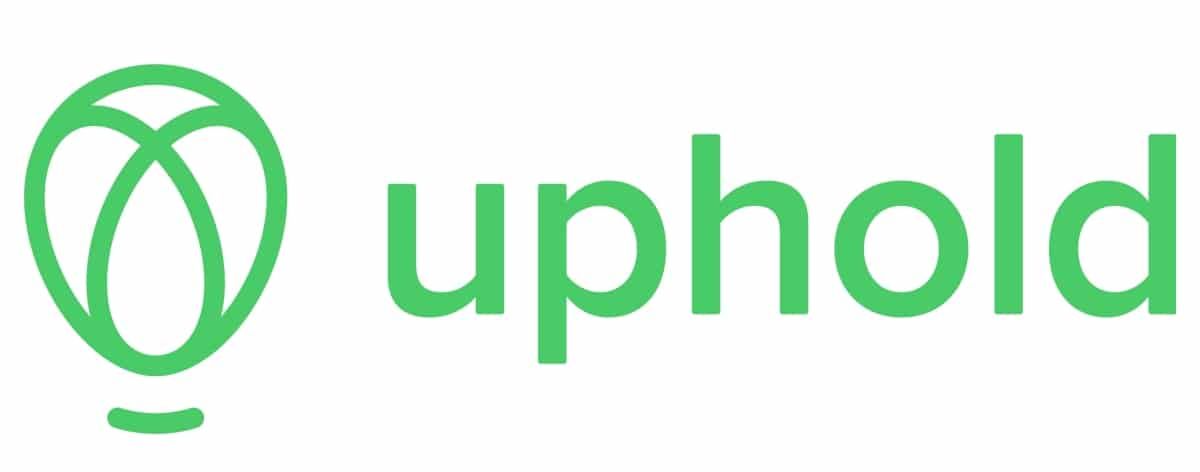
Cryptocurrency savings and high yield accounts are still extremely popular for their ease of use while still having real crypto exposure.
A crypto savings account could be a way for you to dramatically increase your rate of return.
But these accounts don't offer the same safety that a bank or credit union savings account can offer. Before you decide to invest, it's important to understand how crypto savings accounts work and their pros and cons.
Once you understand how these accounts work, you'll also want to know where you can get the best yields. In this guide, we'll answer your most burning questions about crypto-based savings accounts and give our top picks for 2024.
What Are The Top Crypto Savings Accounts?
Below you’ll see the top crypto-based savings accounts along with their top advertised yields on various crypto currencies. For more information about each company (along with some of the restrictions), read a bit further.
Note: Yields shown are as of September 4, 2024. The College Investor's team updates this information regularly, typically Monday-Friday. Rates may have changed since they were last updated and may vary by region for some products.
These yields are subject to change at anytime. If you notice a difference, please let us know in the comments!
Company | Stable Coins (e.g. USDC) | Bitcoin |
|---|---|---|
0.67% | 0.04% | |
N/A | N/A | |
Up to 8% | Up to 3% | |
Up to 5.20% | N/A | |
Up to 4.50% | Up to 5.00% | |
Up to 18% | Up to 9% | |
Up to 10.5% | Up to 2.5% |
KuCoin
KuCoin is one of the most popular cryptocurrency exchanges, and they have a great savings product called KuCoin earn. You can earn crypto with high APY by saving, staking, or taking advantage of promotional offers.
KuCoin Earn also has more assets available to earn than most other companies on this list. Right now, you can earn 0.67% APY on USDC and 0.04% on BTC. They also have other assets that have much higher APYs.
Read our full KuCoin review here.
Uphold
Uphold has been a solid cryptocurrency exchange for the last several years, and they also offer great staking rewards where you can earn on your crypto. They also make it a point to say "they never lend out your money" - which is a nod to the crazy events that happened with several crypto savings accounts.
Right now, you can earn up to 14% APY on your crypto assets. However, the assets vary that you can earn on.
Note: Uphold no longer supports staking for US-based customers.
Read our full Uphold review here.
Nexo
Nexo boasts minimal lock up times (less than 24 hours), and third-party guarantees of it’s crypto assets. That makes it an appealing option with super high yields on US dollars and some of the highest rates on crypto currencies. Right now, you can get up to 8% on stablecoins and 3% on Bitcoin.
However, it doesn’t clearly disclose how much you have to invest to achieve the highest rates of return.
Plus, right now you can earn a $25 BTC bonus when you open an new account, complete advanced verification, and deposit at least $100 in supported assets onto the platform. You must maintain the balance on Nexo for at least 30 days.
Note: Nexo paused its Earn Interest product for new U.S. based customers. Existing customers will still be able to earn and withdraw, but cannot add more deposits into it.
Read our full Nexo review here.
Coinbase
Coinbase is best known as a digital wallet. But it also serves as a digital crypto savings account for some customers. Eligible US based customers can earn up to 5.20% APY on US Dollar Coins (USDC).
Coinbase does have a tiered structure:
Holding Amount | Reward APY |
|---|---|
Under $1,000 | 4.20% |
$1,000 to $10,000 | 4.70% |
Over $10,000 | 5.20% |
Unlike other companies on this list, Coinbase doesn’t lend out it’s USDC. Instead, this is a way to earn a small amount of interest while you wait to make trades on cryptocurrency. Plus, if you open a new account as a new customer, you'll get a $10 BTC bonus when you deposit your first $100!
Read our full Coinbase review here.
Crypto.com
Crypto.com advertises some of the highest interest rates on the market. But the terms to get these rates are very specific. Investors with smaller amounts of cryptocurrency are likely to find better yields outside of Crypto.com.
The platform pays interest on 15 traditional cryptocurrencies and 8 stablecoins. The yields are based on simple daily interest. And to get the highest yields you will have to keep your investment for at least 3 months.
Read our full Crypto.com review here.

YouHodler
YouHodler’s crypto-based savings accounts are high-yield and also seems to offer a lot of protections for investors. They are currently not available in the United States, but they are available in the UK, EU, Eastern Europe, and Asia (China, Japan, Korea).
The company allows savers to withdraw from the platform at any time. But the minimum investment is $100 USD.
Read our full YouHodler review here.
Ledn
Ledn is a crypto-lending platform that brands itself as a crypto savings account. It has a few different options for earning interest on your cryptocurrency, and it has some promising rates.
Right now, you can get up to 10.5% on USDC and up to 2.5% on BTC.
USDC has two tiers:
- 0 - 100,000 earns 8.5%
- 100,000 or more earns 10.5%
BTC has two tiers:
- 0 - 2 BTC earns 1.00%
- Over 2 BTC earns 2.5%
Read our full Ledn review here.

Crypto Savings Accounts Vs. Regular Savings Accounts
What are the main differences between a crypto-based savings account and a regular savings account? Here are a few things that set them apart.
FDIC Insurance
Your bank savings account comes with $250,000 of FDIC insurance. And there are ways to get even more insurance than that.
But there won't be any federal insurance offered on a crypto-based savings account. You can lose money (or crypto) in this savings account. So you should think of it more as an investment rather than a savings account.
Key Access
In a normal savings account, the money is yours, full stop. In crypto-based savings accounts, your crypto keys are lent out to other people who can use the crypto for a certain period of time. In exchange, the borrower promises to pay you interest on the crypto that you lend them.
Yields
Yields on cryptocurrencies range from about 4% to 8% or more. This is significantly more than the yields on traditional savings accounts.
This is because crypto banks cannot “produce money supply,” so they have to attract investors with high yields. The supply and demand for crypto financing drives the interest rates.
Withdrawal Restrictions
In a traditional savings account, you can withdraw money up to 6 times per month without facing any penalty. However, crypto savings accounts may impose more restrictive limits on the frequency or amount that you can withdraw. Unfortunately, there’s no standardized guidance for withdrawal limits, so it’s tough to generalize on this point.
Compound Interest
One odd facet of certain crypto-based savings accounts is that interest may not compound. That means your initial deposit grows over time, but the interest on the growth does not compound. You essentially have to spend or trade the interest to realize the gains.
Related: How Does Compound Interest Work?
Crypto Savings Accounts Vs. Crypto Wallets
How do crypto-based savings accounts compare with crypto wallets? These are the biggest differences that you'll want to be aware of.
Interest
When you have Bitcoin or another form of crypto in a wallet, the number of coins you own doesn’t change over time. With crypto-based savings accounts, the number of coins you own will increase over time (provided the crypto bank doesn’t fail).
Key Ownership
Often with crypto savings accounts, when you deposit coins, you give up access to your keys. That allows the exchange to lend your crypto to other individuals. Some crypto investors find this to be unacceptable, so they choose to avoid savings accounts altogether.
Security
This point is contentious among crypto investors, but some see crypto wallets as a very weak form of security. Losing your phone could mean losing all your money. Even if you have multi-factor authentication on your wallet, you could lose everything.
By contrast, crypto banks have built in redundancies to secure the crypto keys. These institutions take bank-level security to the next level.
Will You Make Money With A Crypto Saving Account?
If you deposit money into a crypto-based savings account, you can expect to earn interest, but the yield will be in the crypto-currency of your choice. If your goal is to make US dollars, you may not get the result you want.
Of course, some of the major crypto banks are offering fantastic yields (as high as 8.6%) on the USDC coin which has very close parity to the US dollar. That said, sudden fluctuations in demands (especially drops in demand) for the USDC could wipe out your initial investment and the subsequent returns.
A few of the crypto savings accounts (such as Linus and Outlet Finance) don’t require users to have any cryptocurrencies at all. Instead, investors deposit US dollars and receive interest in dollars. However, these accounts have the same risk profiles as other crypto accounts. Investors still have exposure to the volatile cryptocurrency market.
At the end of the day, crypto currencies have a risk profile that government-backed money does not. You may see fantastic returns, but it is not guaranteed. However, if you already own cryptocurrency (or want to own it), I see value in crypto savings accounts.
Why Should You Trust Us?
We've been writing and covering various aspects of the cryptocurrency space since 2016. We've reviewed and personally tested many of the products and services in the greater crypto marketplace, including all of the services on this list.
Furthermore, our compliance team reviews and checks the accuracy of these rates and services every week day.
Should You “Save” Money In Crypto Savings Accounts?
All of these “savings” accounts have one thing in common -- they're actually investments. While it's exciting to imagine returns in the realm of 4-10%, these returns are not guaranteed. Each crypto-based savings account involves exposure to the highly volatile cryptocurrency investment market.
If you're a believer in the future of cryptocurrency, opening a crypto savings account could be a great way to diversify your investing portfolio. But if you're looking for an actual FDIC-insured savings account for your emergency fund, these are our favorite high-yield options.

Robert Farrington is America’s Millennial Money Expert® and America’s Student Loan Debt Expert™, and the founder of The College Investor, a personal finance site dedicated to helping millennials escape student loan debt to start investing and building wealth for the future. You can learn more about him on the About Page or on his personal site RobertFarrington.com.
He regularly writes about investing, student loan debt, and general personal finance topics geared toward anyone wanting to earn more, get out of debt, and start building wealth for the future.
He has been quoted in major publications, including the New York Times, Wall Street Journal, Washington Post, ABC, NBC, Today, and more. He is also a regular contributor to Forbes.
Editor: Colin Graves Reviewed by: Richelle Hawley





